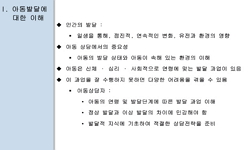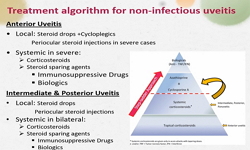A prospective randomized controlled trial of a long-term (12 months) therapy with diphenyl-dimethyl- dicarboxlylate (PMC) was performed in a total number of 66 patients with chronic active liver diseases: Thirty one patients received PMC 150 ㎎/d and...
http://chineseinput.net/에서 pinyin(병음)방식으로 중국어를 변환할 수 있습니다.
변환된 중국어를 복사하여 사용하시면 됩니다.
- 中文 을 입력하시려면 zhongwen을 입력하시고 space를누르시면됩니다.
- 北京 을 입력하시려면 beijing을 입력하시고 space를 누르시면 됩니다.

만성 활동성 간질환 환자에서 Diphenyl - Dimethyl - Dicarboxylate 의 혈청 Alanine Aminotransferase 치 저하 효과에 관한 전향적 무작위 선정 대조 연구 = Prospective , Randomiaed , Controlled Trial with Diphenyl - dimethyl - dicarboxylate in Chronic Active Liver Diseases ; The Effect on Lowering Serum Alanine Aminotransferase Levels만성 활동성 간질환 환자에서 Diphenyl - Dimethyl - Dicarboxylate 의 혈청 Alanine Aminotransferase 치 저하 효과에 관한 전향적 무작위 선정 대조 연구
한글로보기https://www.riss.kr/link?id=A3306430
- 저자
- 발행기관
- 학술지명
- 권호사항
-
발행연도
1991
-
작성언어
-
- 주제어
-
KDC
500
-
등재정보
KCI등재후보
-
자료형태
학술저널
- 발행기관 URL
-
수록면
172-178(7쪽)
- 제공처
- 소장기관
-
0
상세조회 -
0
다운로드
부가정보
다국어 초록 (Multilingual Abstract)
A prospective randomized controlled trial of a long-term (12 months) therapy with diphenyl-dimethyl- dicarboxlylate (PMC) was performed in a total number of 66 patients with chronic active liver diseases: Thirty one patients received PMC 150 ㎎/d and age, sex-matched 35 patients were enrolled as non-treated controls. Among the 31 patients treated with PMC, PMC was given to 21 patients for 12 months from the start of the study (Group PMC-1) and was given to the rest of 10 patients from the 7th month after 6 months` follow-up period without PMC (Group PMC-2). Serum ALT levels in Group PMC-1 decreased from 192±77 (mean±SD)(U/L) of pre-treatment level to 43±44, 34±38, 23±12, 30±24, 26±16, 29±28, and 27±19 (U/L) at 1st, 2nd, 4th, 6th, 8th, 10th, and 12th month respectively. In contrast, ALT levels of the control patients changed from 180±90 (U/L) of pre-treatment level to 159±100, 159±83, 176±84, 146±67, 115±51, 121±73, and 127±68 (U/L) at 1st, 2nd, 4th, 6th, 8th, 10th, and 12th month respectively. Therefore, there was remarkable difference in the mean ALT levels between Group PMC-1 and control group from the 1st month through to the 12th month (p<0.001). The changes in serum ALT in Group PMC-2 were similar to those of Group PMC-1. However, the difference in the mean serum AST levels between Group PMC-1 and control group were not significant (p>0.05) except for at 4th month (p<0.05). No significant adverse effects were observed except for transient and mild upper gastrointestinal symptoms during PMC treatment.
동일학술지(권/호) 다른 논문
-
복수를 동반한 간경변증 환자에서 대량복수천자가 혈장량에 미치는 영향
- 대한내과학회
- 홍성표(Seong Pyo Hong)
- 1991
- KCI등재후보
-
만성 간질환 및 간경변증에 동반된 간세포암 환자에서 혈청 보체치 측정의 의의
- 대한내과학회
- 신창록(Chang Rok Shin)
- 1991
- KCI등재후보
-
B 형 간염바이러스 감염후 나타나는 여러 임상양상과 조직적합항원의 연관성
- 대한내과학회
- 김현우(Hyun Woo Kim)
- 1991
- KCI등재후보
-
- 대한내과학회
- 이상우(Sang Woo Lee)
- 1991
- KCI등재후보




 KISS
KISS







